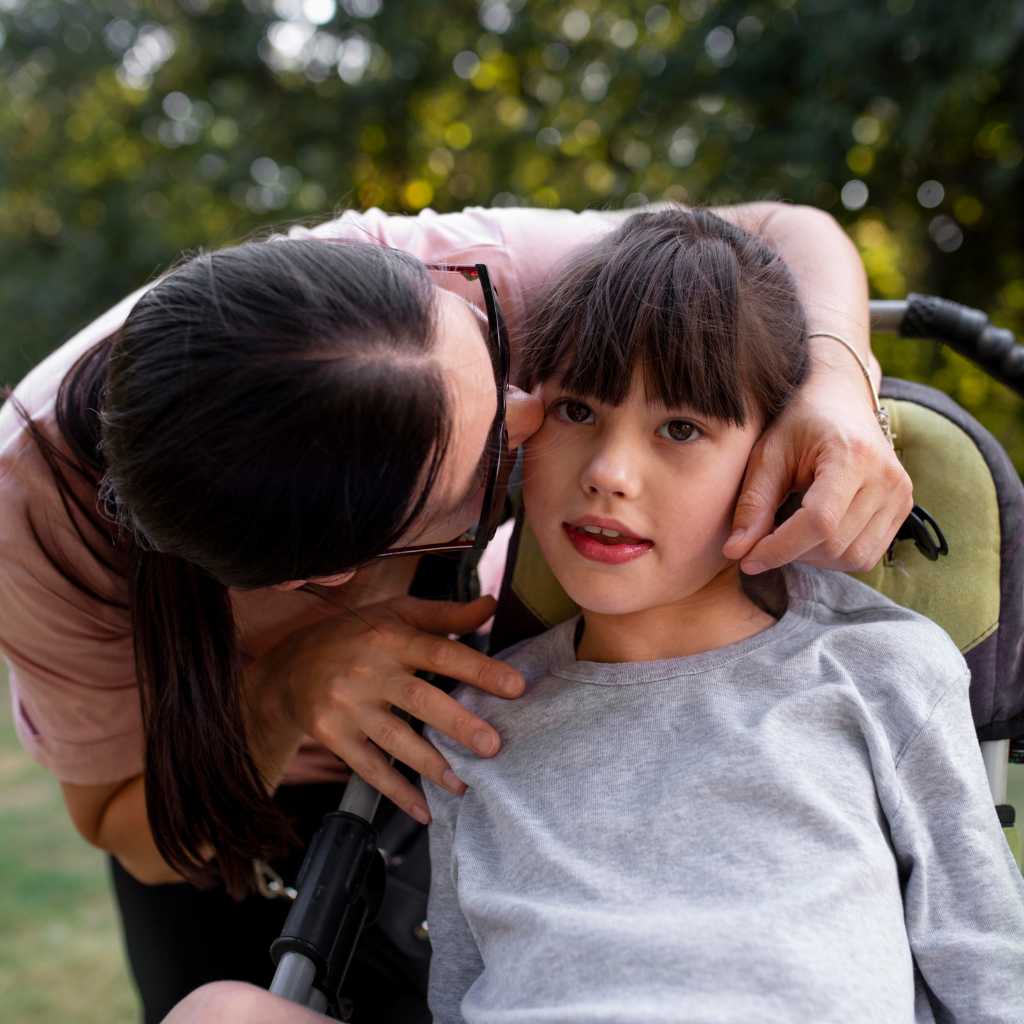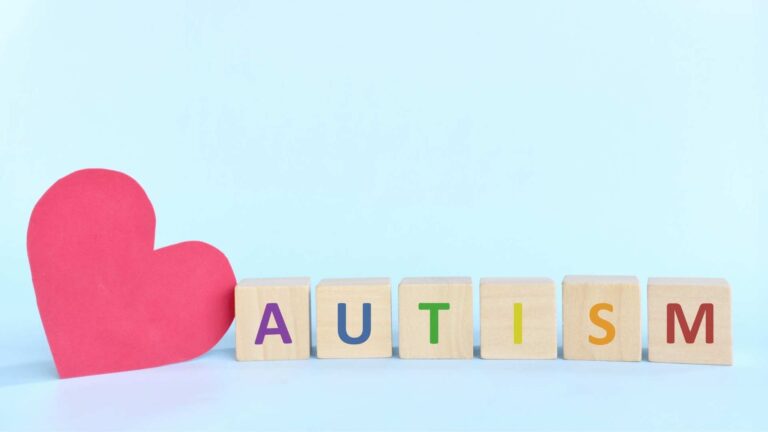Table of Contents
What is profound autism, and how is it diagnosed?
When we talk about autism, we often hear about the spectrum: a range of abilities, challenges, and strengths that make each person’s experience unique. However, within this spectrum exists a specific group that faces particularly complex daily challenges: individuals with profound autism. Understanding what profound autism means and how it impacts families can help us build more supportive communities and provide better care for those who need it most.
What is profound autism, and how is it diagnosed? In simple terms, profound autism refers to individuals who experience severe challenges in communication, daily living, and behavior, often needing around-the-clock support. Diagnosis typically involves a comprehensive evaluation by specialists, including developmental and behavioral assessments.
Profound autism affects approximately 26.7% of all children with autism in the United States, according to the Centers for Disease Control estimates.
In this blog by ABA Centers of Delaware, we’ll explore what profound autism means, what the symptoms of severe autism may look like, and how therapies such as ABA therapy and early intervention can make a meaningful difference.
What Is Profound Autism?
The Lancet Commission introduced the term profound autism in 2021. Their goal aimed to create a clearer distinction within the broad autism spectrum to identify individuals who need substantial or very substantial support in daily life.
People with severe autism often have limited or no verbal communication, co-occurring intellectual disabilities, and significant challenges with daily living skills such as eating, dressing, and hygiene. Some may also experience self-injurious behaviors or strong reactions to sensory stimuli.
Unlike those with milder presentations, individuals with profound autism may not be able to live independently, even as adults. They typically need consistent, long-term care, often involving multiple caregivers and specialized services.

Understanding the Symptoms of Severe Autism

Communication Difficulties
For many individuals with profound autism, traditional verbal communication remains elusive. They may have little to no spoken language, making it difficult for strangers, and sometimes even family members, to understand their needs, wants, and feelings. This communication barrier extends far beyond simple conversation; it affects every aspect of daily life, from expressing pain or discomfort to sharing joy or preferences.
Intellectual and Cognitive Challenges
The symptoms of severe autism frequently include significant intellectual disabilities that impact learning, reasoning, and problem-solving abilities.
Individuals with profound autism may struggle with basic safety awareness, making them vulnerable in everyday situations that others navigate without thought. Daily tasks like crossing a street, understanding that a stove is hot, or recognizing when someone might pose a threat can be overwhelming or challenging to grasp.
This cognitive challenge means that many individuals with severe autism require constant supervision and structured environments to remain safe and engaged.
Medical and Physical Health Complications
The symptoms of severe autism often come with additional health challenges that compound daily difficulties. Seizure disorders, gastrointestinal issues, sleep disturbances, and sensory processing problems are common. These medical conditions can make an already complex situation even more challenging for both the individual and their family.
How Is Profound Autism Diagnosed?

Identifying what is profound autism involves a team approach. Typically, developmental pediatricians, psychologists, and behavior analysts conduct comprehensive assessments. These evaluations focus on communication skills, intellectual functioning, adaptive behavior, and social interaction.
Professionals use standardized tools like the Autism Diagnostic Observation Schedule, Second Edition (ADOS-2) and the Autism Diagnostic Interview-Revised (ADI-R) to determine where an individual falls on the spectrum. If the person demonstrates severe limitations across multiple areas of functioning and requires substantial support, they may receive a diagnosis consistent with severe autism or severe autism.
Diagnosis guarantees access, opening the door to essential services like Applied Behavior Analysis (ABA) therapy, occupational therapy, and speech-language support.
Building Support Systems for Severe Autism
The Power of Early Intervention
Research shows that early intervention services can have a substantial positive impact on the lives of children with autism, including those who will eventually be diagnosed with profound autism. These services, ideally beginning before age three, focus on developing communication skills, reducing challenging behaviors, and teaching fundamental life skills.
ABA Therapy: A Cornerstone of Support
ABA therapy is among the most established and scientifically supported interventions for individuals across the autism spectrum, including those with profound autism.
Here’s how ABA therapy specifically supports individuals with profound autism:
- Comprehensive Functional Assessment
The process begins with an in-depth evaluation conducted by a Board Certified Behavior Analyst (BCBA). This assessment identifies each person’s strengths, challenges, preferences, and triggers. For someone with profound autism, understanding these details is crucial to developing an effective, compassionate treatment plan. The BCBA uses observation, caregiver interviews, and data collection to gain a complete picture of the individual’s needs and behaviors.
- Targeted, Individualized Intervention
Based on the assessment, ABA therapists create highly personalized programs that target essential life skills. These may include communication, self-help abilities like dressing or feeding, and reducing behaviors that interfere with daily life. For example, if a child struggles to express discomfort or frustration, therapy might focus on teaching alternative communication methods to replace self-injurious behaviors or meltdowns.
- Structured Learning Environment
Predictability and structure are essential for individuals with profound autism. ABA therapy sessions are carefully organized, with consistent routines and clear expectations. This structure helps reduce anxiety and allows individuals to feel more comfortable as they learn new skills.
- Step-by-Step Skill Building
ABA therapy breaks down complex goals into small, manageable steps, allowing individuals to experience success along the way. For example, learning to brush teeth might begin with holding the toothbrush, then applying toothpaste, and finally brushing independently. Therapists and families celebrate each small victory and use positive reinforcement, building confidence and motivation to keep progressing.
- Use of Visual Supports
Because many individuals with profound autism are visual learners, ABA therapists often incorporate visual aids into sessions. Picture schedules, illustrated instructions, and visual timers help clarify expectations and transitions throughout the day. For instance, a visual chart might outline the steps in a morning routine, like washing hands, getting dressed, and eating breakfast, helping to promote independence and consistency.
- Functional Communication Training (FCT)
For those with limited or no verbal language, ABA therapy focuses heavily on developing functional communication. Therapists may teach alternative systems such as sign language, Picture Exchange Communication Systems (PECS), or augmentative and alternative communication (AAC) devices.
- Reducing Challenging Behaviors
Through careful analysis, ABA professionals determine the function behind aggression, self-injury, or severe tantrums (for example, escaping a task, seeking attention, or responding to sensory discomfort). Once the behavior therapists understand the underlying reason, they design interventions to replace those behaviors with more adaptive and safe alternatives.
- Empowering Families and Caregivers
Families are active participants in the treatment process, learning how to use ABA strategies at home and in daily life. Parents gain practical tools to reinforce positive behaviors, manage challenging situations, and communicate more effectively with their child. This shared involvement not only accelerates progress but also strengthens emotional bonds and improves overall family well-being.
Breaking Down Barriers for Individuals with Profound Autism and Their Families
Families of individuals with profound autism face unique stigmatization challenges. Frontiers research indicates that 85% of caregivers report experiencing some form of perceived stigma, often characterized by negative responses from community members who don’t understand ASD.
Public misconceptions about autism frequently center around higher-functioning individuals who may excel academically or have exceptional talents in specific areas. This narrow view of autism can leave families feeling isolated when their loved one’s behaviors, such as intense vocalizations, repetitive movements, or occasional aggression, don’t fit the public’s understanding of what autism “looks like.”
ABA Centers of Delaware Supports Families Affected by Profound Autism
Understanding profound autism means recognizing the realities faced by individuals and their caregivers, and embracing the hope that comes with effective intervention and compassionate care.
If your family is seeking guidance, diagnostic testing, or ABA therapy for a loved one with severe autism, ABA Centers of Delaware is here to help. Our experienced team provides personalized care, early intervention programs, and ongoing support designed to promote independence and well-being.
Fill out our contact form or call us at (844) 855-8517 to learn more or to schedule a consultation. Together, we can create a supportive framework based on empathy, knowledge, and advancement for those living with autism.






